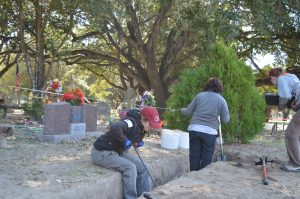It would be impossible for us to do this work alone. There are so many people that are essential in making our efforts successful. I would like to take a moment to thank some of the people who were vital in making this trip so great.
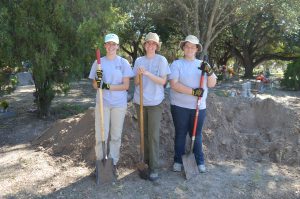
The Cultural Anthropologists
This year we have had the honor of working with a team of cultural anthropologists from the University of Indianapolis. Last year, Dr. Alyson O’Daniel joined us for skeletal analyses in San Marcos. She has joined us again this year and brought along two of her students, Sarah and Rachel. They have had an amazing influence on our team, bringing much-needed different perspectives to everything we do. They also have made our job easier by helping with all of our work such as digging, troweling, moving buckets of sand, and pretty much anything and everything else. They have far-exceeded all of my expectations, and I am incredibly proud to work by their side.
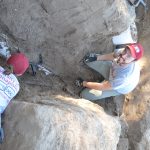
Ryan
Ryan and I have a long bro-mantic history. He was one of the original members of the UINDY crew and my former roommate. Since then he has worked with Texas State and at the South Texas Human Rights Center. He is incredibly informed and hard working. I can think of very few (if any) people that I would rather have working by my side.
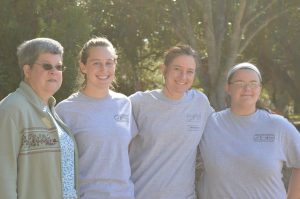
Sister Pam
I first met Sister Pam in 2014. She is one of the most driven and compassionate people that I have ever met. She now spends her time helping the people passing through the Sacred Heart Respite Center. She has an amazing way of changing all of the lives she touches, and I’m proud that I have been able to work with her so closely.
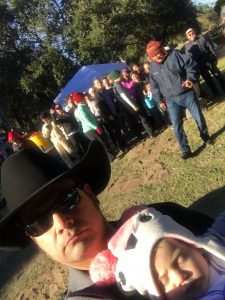
Jorge
Only two of our dig team (Erica & I) speak Spanish, but neither of us speak it very well. This year we have had the luxury of having Jorge with us as a translator. He was essential to communicating with families at the respite center. I believe that I have seen him grow from this trip, and that he has seen the issues of the border in a completely new light. Muchas gracias, Jorge.
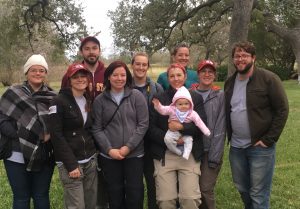
The Lasater’s
Our visit with the Lasater’s is always a highlight of our trip. Bill and Peggy have been incredibly generous hosts and I am incredibly grateful for the insights they give us into the history of Falfurrias. This year they invited us (and the people of Texas State) into their home for cheese, crackers, tamales, and to view the hundreds of turkeys that gather in their yard. I want to thank them, an all of the other people who have made this trip so amazing.
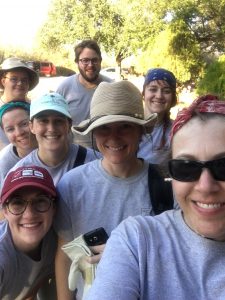
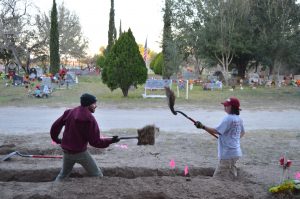 We recreated the 8 quadrant grid that was originally constructed over this portion of the cemetery to organize the excavation efforts. We have started strategically dividing each of these quadrants into a series of deep test trenches. We create 2 parallel trenches running north-south that are 8m in length and 2 trenches that are parallel to each other running east-west that are 5m in length. Essentially we are diving each quadrant like a large tic-tac-toe board. We dig each trench to approximately 60cm in depth and then use a metal T-Probe to investigate beneath our trench floor. Additionally,
We recreated the 8 quadrant grid that was originally constructed over this portion of the cemetery to organize the excavation efforts. We have started strategically dividing each of these quadrants into a series of deep test trenches. We create 2 parallel trenches running north-south that are 8m in length and 2 trenches that are parallel to each other running east-west that are 5m in length. Essentially we are diving each quadrant like a large tic-tac-toe board. We dig each trench to approximately 60cm in depth and then use a metal T-Probe to investigate beneath our trench floor. Additionally, 